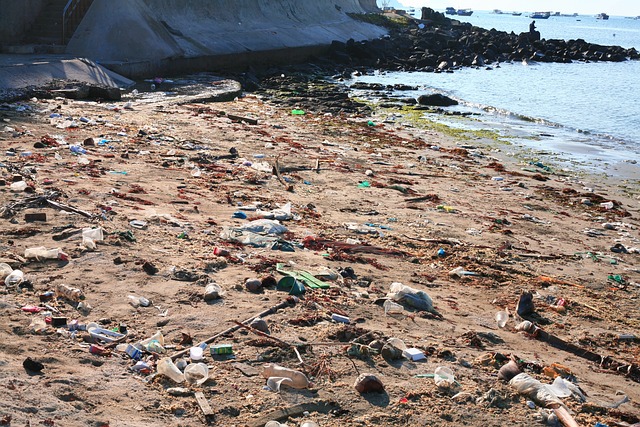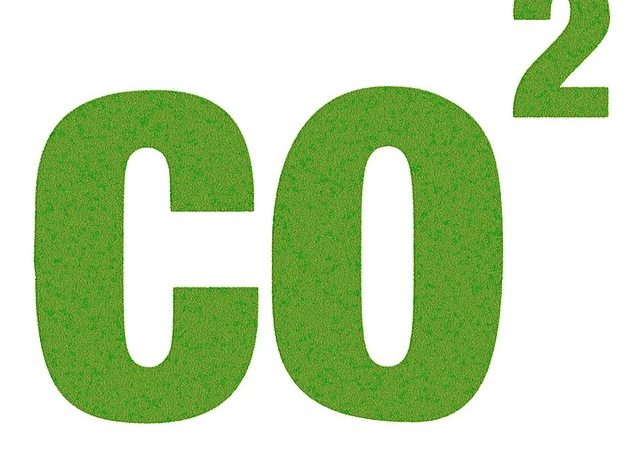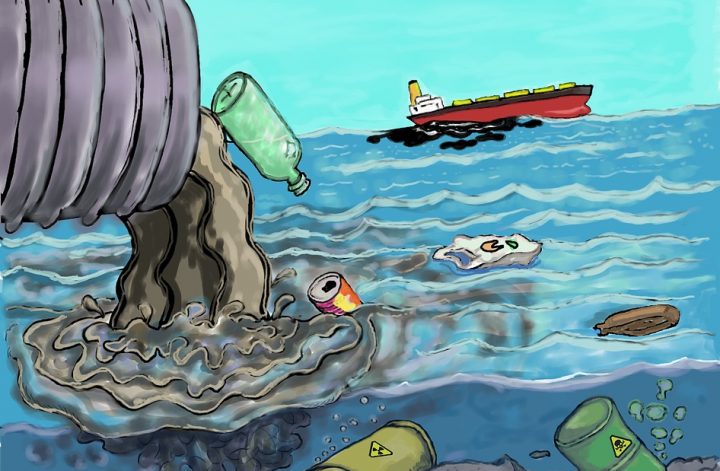Introduction:
Marine Pollution needs no introduction in this day and age when almost all of us are aware with the knowledge that an island made entirely up of plastic and other debris is floating beneath the very surface of the pacific ocean. It is also known as the great pacific garbage patch. Yet, humans only continue to dump more and more trash not just in the form of plastics but also directly pour their sewage and industrial waste into the sea and oceans.
Related: How Pakistan Is Handling Plastic Waste and Pollution?
This sort of pollution is especially taking a huge toll on the territorial waters that connect to the larger oceans of the world. The impacts of this are already being clearly seen on our coasts in Baluchistan and Karachi to give a few examples. Astola Island in Baluchistan has already suffered from a coral reef bleaching event that is currently under the protection of the Asian Development Bank to protect its rich marine biodiversity. The first of its kind in Pakistan.
Also check out: Marine and Coastal Ecosystem of Pakistan – Climatic Biome
However, when it comes to Karachi, which is one of the megacities of Pakistan and also home to the Karachi coast (Arabian Sea), the effects of the pollution have begun to increase and multiply right in front of our eyes as some industries continue disposing and therefore more and more aquatic creatures and life show up dead on the coast.
IMPACTS OF THE INDUSTRIAL WASTE DUMPING ON THE KARACHI COAST:
The Clifton Beach and sea view are now suffering from unsightly pollution in the form of dead fish, crabs, sea shells and even turtles!
The discharge of sewage from industries without secondary treatment directly into the sea is causing alarming levels of death in the waters.
About 20% of the waste generated by the city of Karachi itself, comprising of a population of approx. 17 million people is dumped directly into the sea.
According to latest reports that are very alarming, thousands of gallons of sewage is disposed off into the water. This is a state of national emergency. Karachi has become a sight of man-made disaster due to the unrelenting amount of sewage and waste being dumped in it.
It is estimated that around 88% of sewage is dumped by Karachi into the Arabian sea mostly through open drains flowing past fishing villages.
Also read: Marine Pollution – Its Risky Effects on Marine Life & Humans
LOSS OF SPECIES:
A marine expert stated that all along a 10km stretch of the Karachi coast that includes Rehri Goth, Ibrahim Hyderi, Korangi fish harbour, Landhi Cattle Colony and Gizri Creek. Untreated sewage has made the surroundings of this coastal belt devoid of animals. Popular fishing catches like shrimps, fish and other marine animals that most fishermen and the fishery industry itself relies on have diminished severely in a radius of five to seven kilometers. Marine life had been thriving here for millions of years, but vanished during the last 20 years, due to untreated sewage dumping.
Additionally, we are also facing loss of biodiversity. Lamp shells, which are a type of small shellfish were found in the area specifically in the Karachi Fish Harbour, Korangi Creek and Landhi for at least 20 million years. These lamp shells have unfortunately vanished in the past two decades, and many species of sponges, sea anemones, corals and jellyfish have also disappeared.
You might also like to read: Impact of Marine Species Harvesting Industry on Environment
STATUS REPORT 2023:
As of 2023, the latest reports show that the entire Karachi beach is flushed with seashells which is a sign of dead fish in the seas. aquatic creatures and animal dead bodies are being found behind young mangroves due to the impacts of pollution. Marine pollution in the Karachi coast and nearby areas is so bad that we have dead fish which will directly impact not just the fisheries sector and aquaculture businesses but also the fact that we have the ever increasing of food scarcity and water shortage looming very close to our heads.
It is an appeal to the government to do something about this ever increasing issue by implementing some sort of penalties on the polluters and altogether implementing a polluter pays principle on every citizen as a means of paying for the externalities that inadvertently result in pollution such as carbon footprint, air pollution caused by cars or transports used by an individual. Immediate action is needed before Pakistan falls into a state of despair.
Check out: Climate Change Impacts on Coastal Areas and Marine Resources of Pakistan
Also check out: China to Launch Five Year Plan To Protect Marine Environment
We hope you liked this post! Please comment below if you have any suggestions, comments or feedbacks! We at #envpk love hearing from readers! Thanks.




